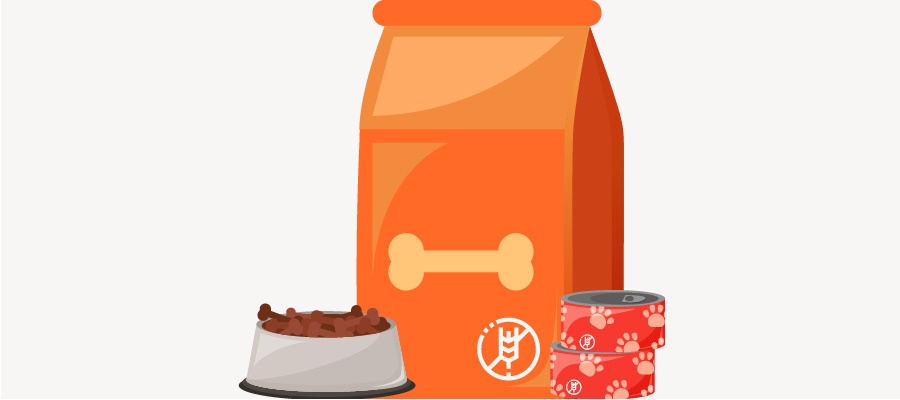As a pet owner, you’re always looking for ways to give them the best life possible, and that includes the food you feed your dog. But could it be possible that a trendy dog “health” food trend is harming your pet?
Veterinarians and the FDA have recently raised concerns about “grain free” dog foods popularized over recent years. According to some recent reports, gluten-free diets could be causing spikes in heart issues among dogs.
What’s Good for Humans May Not Be Good for Dogs
Gluten has been under investigation in recent years as people examine what’s best for their bodies. Popular diets like Paleo and Whole30 have made it fairly mainstream to believe that grains may not be a healthy nutritional option. But while some humans may benefit from a grain-free diet, the same isn’t always true for our furry friends.
The U.S. Food and Drug Administration (FDA) recently announced that it was investigating a possible link between grain-free dog foods and canine heart disease rates. Many of these foods are advertised as a healthier alternative for your dog, with ingredients such as sweet potatoes, lentils, and peas that appeal to a health-conscious pet owner. Some companies even claim these dog foods are closer to the “ancestral” diets of your dog, again aligning with popular nutritional trends.
Is Your Dog Eating the Right Food?
The FDA announced that there have been “highly unusual” reports of dilated cardiomyopathy among dogs in recent years, prompting their concern and investigation. Some dog breeds— notably larger ones such as Great Danes and Dobermans—are genetically predisposed to dilated cardiomyopathy. But veterinarians are seeing increased numbers of other dogs who wouldn’t usually be suspect for heart issues, such as Shih Tzus and Miniature Schnauzers, come through for dilated cardiomyopathy. According to initial findings, the dogs in question seem to have been eating foods containing legumes and potatoes as their primary source of nutrition for months to years as the time of their heart problems.
The FDA is continuing its investigation by contacting pet food manufacturers and the veterinarian community to open up a dialogue about pet nutritional health findings. The FDA believes that further research is necessary.
If you’re concerned that your dog could be eating the wrong food, make an appointment and talk to your vet. Always check with your veterinarian to see if your nutritional choices are the right ones for your dog’s age, weight, breed, and habits.

